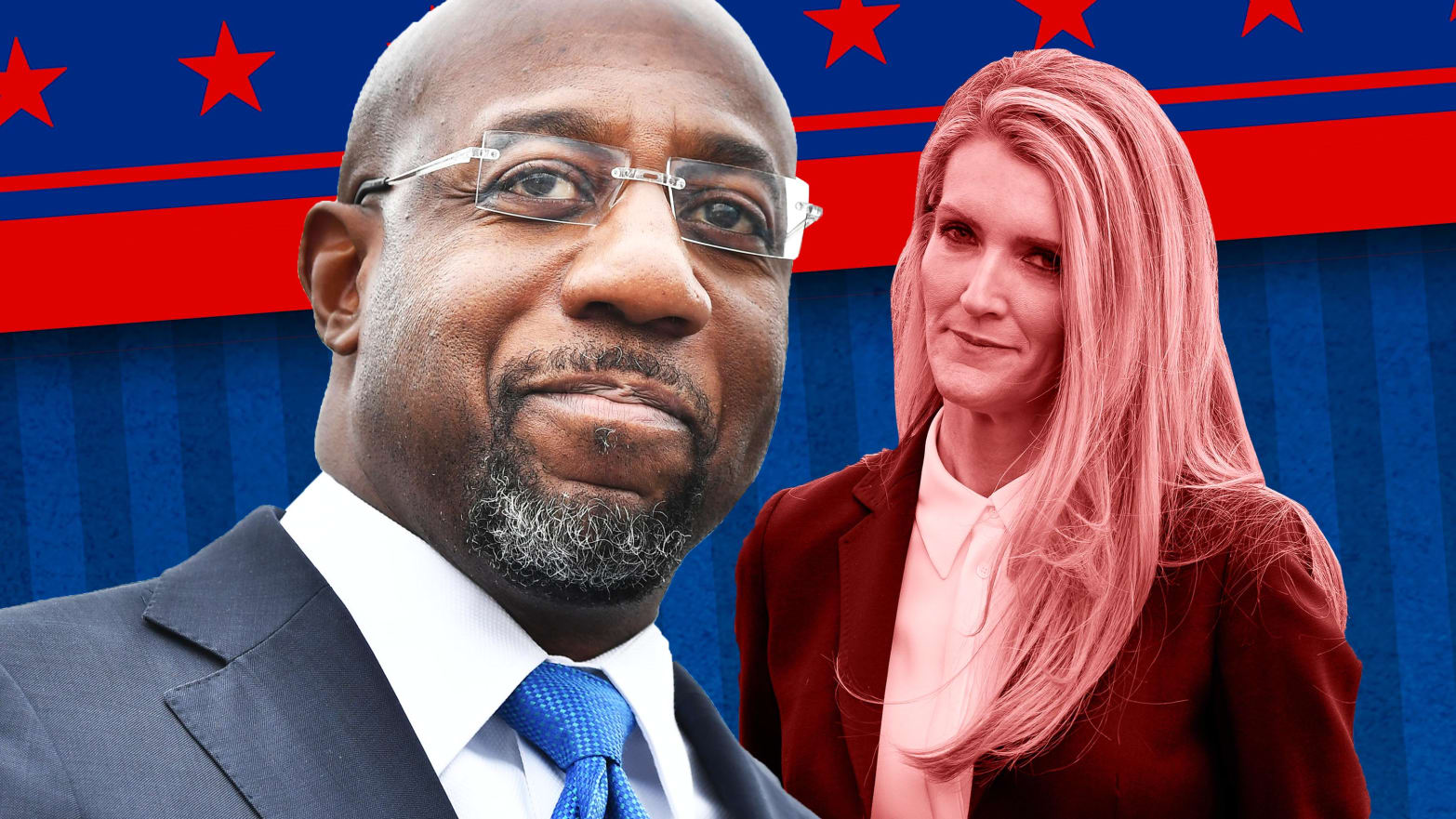ATLANTA—The state of Georgia has elected its first Black U.S. senator: on Tuesday, Raphael Warnock, a Democrat, defeated Sen. Kelly Loeffler (R-GA) in one of the state’s two runoff elections.
Warnock’s victory puts Democrats within one seat of attaining a majority in the U.S. Senate. If Jon Ossoff defeats Sen. David Perdue (R-GA) in the too-close-to-call second runoff, the party will effectively control the chamber, with Vice President-elect Kamala Harris serving as a tie-breaking vote. The votes in the second runoff are still being counted but Ossoff declared victory at around 8 a.m. Wednesday morning.
Warnock, whose mother grew up working in the cotton fields, rose to become the preacher at Ebenezer Baptist Church, the congregation once led by Dr. Martin Luther King, Jr. In a late-night video, he remarked on his historic ascent to one of the most powerful deliberative bodies in the world.
“The other day, because this is America, the 82-year-old hands that used to pick somebody else’s cotton picked her youngest son to be a United States senator,” he said. “Tonight, we proved with hope, hard work and the people by our side, anything is possible.”
At around 2 a.m., the major TV networks and the Associated Press called the race in Warnock’s favor.
The senator-elect gave an emotional interview on CNN early Wednesday, saying Dr. Martin Luther King would be “smiling” to look down and see that he was being elected to the Senate, probably alongside his Jewish colleague Jon Ossoff.
Warnock had been a familiar figure in Georgia Democratic circles for years, known for his activism on health care, criminal justice, and other issues. But he had never before run for office, and the 2020 campaign became perhaps the most grueling test imaginable for a first-time candidate.
Warnock spent most of the 2020 campaign preparing for a one-on-one against either Loeffler or former Rep. Doug Collins (R-GA), as the two Republicans were locked in a bitter contest to secure a spot in the January runoff. As a result, he was not attacked for most of the year—which changed immediately after Loeffler edged out Collins in the Nov. 3 election.
Backed by hundreds of millions of dollars, Loeffler and her GOP allies funded an all-out blitz of TV attack ads going after Warnock. They cribbed footage from his many hours of sermons as a preacher at Ebenezer Baptist Church in an effort to portray him as a far-left radical who admired communist dictators and disparaged the military and police. In the heated final stage of the race, they used a March 2020 dispute between Warnock and his ex-wife to claim he was a domestic abuser.
Democrats denounced many of these ads as part of a racist effort to smear a Black candidate. But they also aggressively attacked Loeffler, particularly for her financial dealings. In March, The Daily Beast reported that Loeffler offloaded millions of dollars in stock holdings after senators received a private briefing about the coronavirus outbreak in January. Loeffler claimed she was exonerated by federal authorities, but Warnock referred to the stories often during the campaign, painting Loeffler as a self-interested elite in the Trumpian mold.
It was hard for Loeffler to escape Trump’s shadow during the runoff campaign. The president’s constant attacks on Georgia’s election system after his November defeat in the state sparked fears within the GOP that conservative voters would not show up to participate in a “rigged” process.
Loeffler, who worked assiduously to ally herself to the president in the eyes of his base, tried hard to validate their angst about the election that Biden won. In media appearances and even on the debate stage with Warnock in December, Loeffler declined to push back on Trump’s quest to destroy Kemp—who appointed Loeffler to the Senate—and his open calls for him to be primaried.
In a rally featuring Trump on Monday night, Loeffler used her precious time to tell the crowd and cameras that she would fight to overturn Biden’s rightful victory by objecting to the Electoral College’s certification of the election results on Wednesday.
Though Warnock passed one grueling test, his next one begins almost immediately. Because this was a special election to fill the rest of former Sen. Johnny Isakson’s (R-GA) term, Warnock will face voters again in November 2022 to earn a full six-year term in the chamber.

